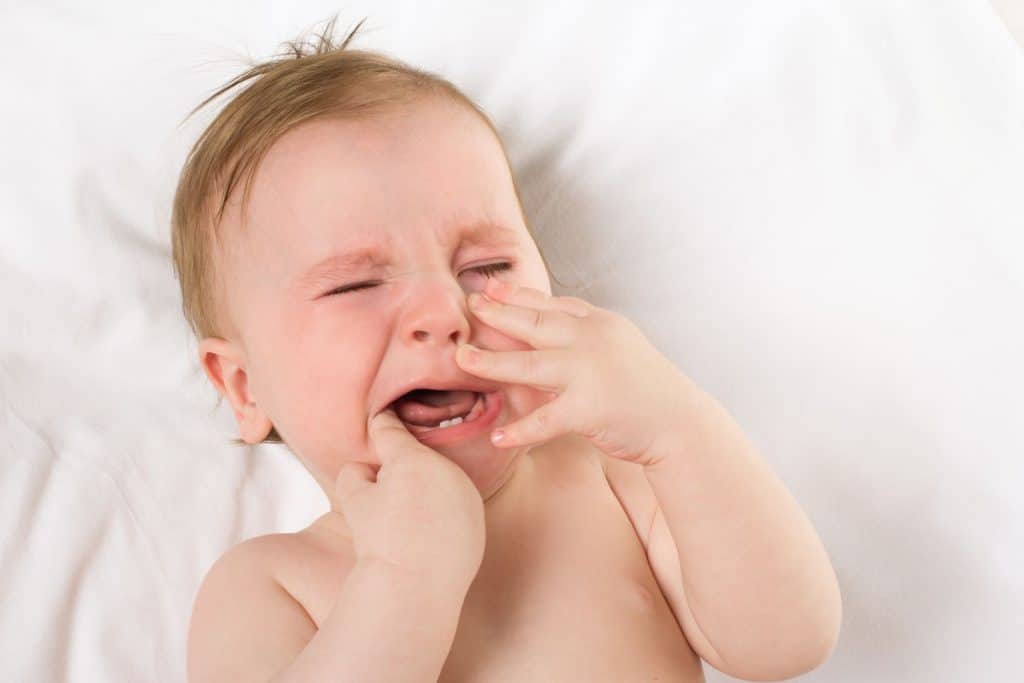We perform a baby's teething is a normal stage of development. Over several months, baby teeth form inside the jawbone and gradually move out. The growing tooth then causes inflammation of the gums.
Learn about the symptoms that come with teething and how to relieve them.
The different symptoms of a baby's teething
There are a number of symptoms that can help identify baby's teething:
- A significant salivation During teething, baby salivates and drools much more than usual. This abundant salivation has two roles: to keep baby's mouth hydrated and to allow the gums to be protected during teething,
- A irritability Baby cries more easily, is restless and grumpy. The pain of teething makes him more irascible,
- With red cheeks which are side effects of teething. This redness usually appears on the side of the face where the baby tooth will appear,
- With swollen gums Gum disease: this is one of the most obvious symptoms of teething. The gums are very swollen and sensitive to pressure. As they swell, their color changes. The area near the teething is darker than the rest of the gums,
- A mild diarrhea During teething, baby's stool becomes softer and smellier,
- A loss of appetite The pain caused by teething can ruin the appetite of the little ones,
- A diaper rash often accompanies teething,
- With difficulties in falling asleep The child's sleep is often disturbed by the pain of teething,
- The presence of a small blue bubble on the gum, also known as aeruption cyst", announces the breakthrough of a milk tooth,
- A slight fever is a classic symptom of teething. However, it should be moderate and not exceed 38°C.
The side effects of teething can vary from child to child and from tooth to tooth, while theThe order of teething is generally the same between babies.
Complications during baby's teething: when to consult?
Teething symptoms can be uncomfortable for your baby, but that doesn't mean your baby's overall health should be affected. It is important to remain vigilant in case of important symptoms and to consult a pediatrician quickly if baby's health deteriorates.
It is important to remain cautious, especially in case of fever. If the fever is higher than 38°C and persists beyond 48 hours, it is advisable to consult a pediatrician. Moreover, a significant diarrhea with liquid stools is not linked to teething. This type of symptoms should alert you.
Teething can sometimes have complications. It is indeed possible that :
- Baby's first tooth grows crooked,
- A tooth grows in the palate,
- A permanent tooth comes out behind a baby tooth.
These cases are not serious but require a visit to your pedodontist.
Teething: why does baby have sore gums?
Teething is an unpleasant time for babies and their parents who see their offspring suffer during this period.
During teething, baby's gums are very sore. Teething actually causes the teeth to move into the jawbone and through the gums. This movement of the baby teeth causes inflammation of the gums that lasts several days before the baby tooth erupts.
Teething in babies causes many painful symptoms. Rest assured, there are tips to relieve children while their teeth are coming out. The use of necklaces for baby's teethTeething rings or gum gels can help younger children during teething.


